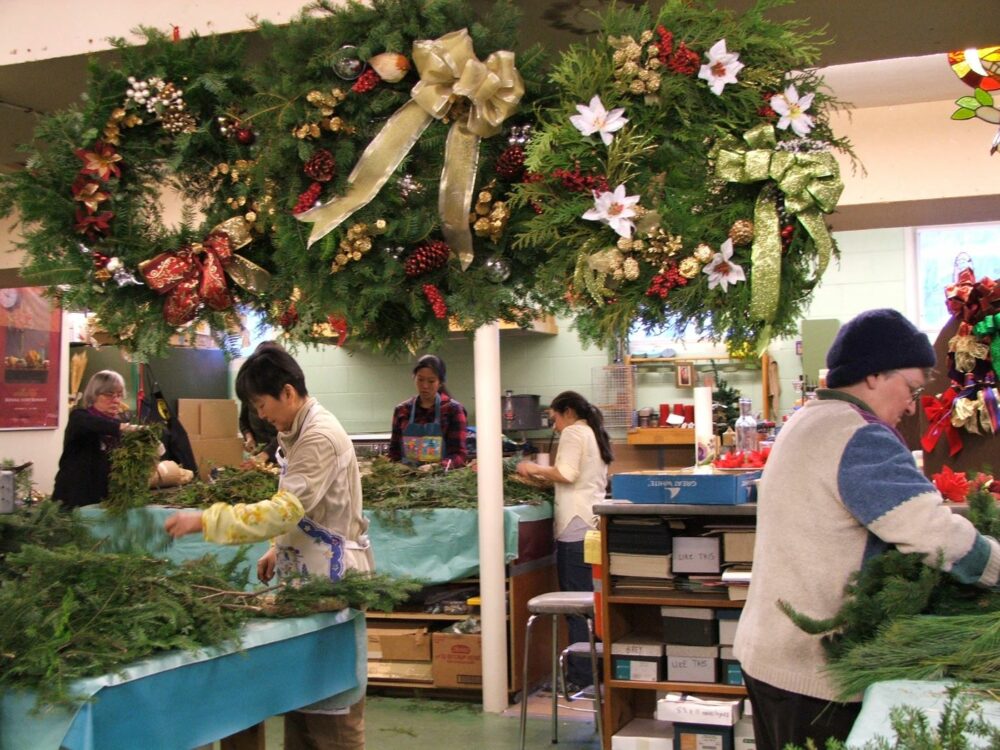
A while back I came across a book that had come out many years ago. It was called the I Hate to Cook Book. It’s a collection of recipes which are simple and designed to take as little time in the kitchen as possible. There are some helpful ideas in this book, but there is something about the title that I found offensive. My Christian parents always taught us that there were very few things that you could really hate, so the word was always used judiciously in our home. Having thought about hating to cook, I guess it’s permissible. But I wonder if as Christians we can really hate cooking.
I Hate to Decorate
As Christmas approaches, I am reminded of many people I know who have the problem, “I hate to decorate for Christmas.” They might be afraid to say it aloud for fear of sounding like Scrooge, but the dislike is there. I am very aware of the problem because for many years when I was responsible for our handicraft center, I had to try to motivate both newcomers and old-timers in our community when they were asked to help prepare the house for Christmas.
An Answer
One year I found an answer to this perennial Christmas problem, but it wasn’t at Christmastime. I was preparing a friend for her profession of faith, and I read in one of our catechisms that the most profound difference between Catholic Christianity and that of other denominations is that we believe our salvation comes to us through ordinary, material things. No doubt the author was primarily referring to the material things used in the sacraments— to the water, the oil, and the bread and wine through which comes sacramental grace. But the book simply said that our salvation comes through material things, like taking matter and arranging it with great love to celebrate the fact that at Christmas, Christ embraces our material world with love.
I meditated on this reality for many months, and when Christmas came that year, I had a new view of what Christmas decorating (and a lot of other things) is all about. It is about matter.
On the Christmas feast we celebrate the fact that Our Lord took on flesh, that he touched the earth, and that he thereby blessed everything on the earth and of the earth.
He blessed the evergreen tree that we would cut for the dining room. He blessed the flax that would become the linen tablecloths for our Christmas table. He blessed the bees’ wax for our many candles that light the house during their twelve days of burning.
And he blessed us that we might have the love in our hearts to trim that tree with care, and iron the tablecloths well—all this so that this blessed matter might reflect the beauty in God himself.
Christmas decorating is taking matter and arranging it with great love to celebrate the fact that on Christmas Christ embraces our material world with love.
To do this our faith in the Incarnation must be deep. Perhaps to deal well with matter we have to come to a point of awe before the mystery of the fact that God came to earth. Perhaps we have to have awe before the humility of God and the holiness of things.
Christmas decorating has more to do with faith than with creativity. It is a great gift to be creative, and at Christmas the artists in Madonna House (as well as the “non-artists”) have limitless opportunities to use their talents. And beautiful creations abound.
Without Faith
But without faith where would their inspirations come from? Without faith where would they get the energy to carry them through the hard work of creating?
In an explanation about Christmas decorating Catherine Doherty wrote:
Let all our love and talents, our research — personal and collective — as well as our constant consultation with one another go into the decoration of the house (as well as our hearts!) on this great feast of Christ’s Birthday. For it is quite obvious that this work of love is the work of everyone, of all hands at Madonna House.
What we are doing is singing our love song to God through beauty, the understanding of which is a gift, a “special talent.” Let us then pour ourselves out, returning this gift to him, the Christ Child.




